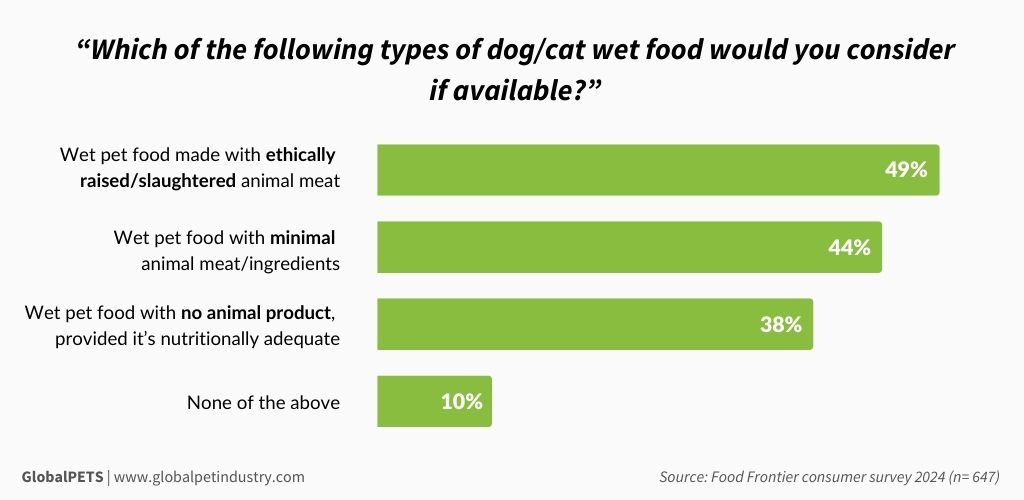Revealed: Australian pet owners increasingly prefer sustainable pet food

The growing demand has also increased the interest for alternative-protein options in the regional market.
A survey of 2,000 Australians by a local non-profit organization Food Frontier found that 47% of dog and cat owners are open to changing their pet’s diet due to ethical, health, and environmental concerns.
Nearly half (49%) of the Aussie respondents preferred pet food made from ethically raised and sourced animal meat.
44% of respondents expressed interest in pet food containing minimal animal ingredients, while 38% would consider nutritionally adequate wet pet food made entirely without animal products. Only 10% were unwilling to purchase any of these sustainable options.
This aligns with a broader trend, with nearly 8 out of 10 respondents reporting they go meat-free at least once a week, and some completely abstaining from meat.
Notably, this reflects a global shift toward sustainable pet food preferences, with pet owners in the Middle East and Africa (74.4%) showing the strongest commitment to environmental concerns, followed by those in the Asia Pacific region (68.3%).
New market products
The Pet Nutrition in Australia report, released by the New Zealand government in 2023, also found rising demand for sustainable pet food, with consumers particularly seeking for more eco-friendly protein sources.
Last year, Real Pet Food Co was granted an exclusive import permit for pure Black Soldier Fly (BSF) meal in Australia, highlighting the ingredient’s growing popularity and numerous benefits.
Environmental impact
A study from the University of California revealed that pet food production contributes to 64 million tons of carbon dioxide-equivalent gases annually in the US, a figure likely to rise with the growing demand for raw and gourmet pet food.
Another research from Australia’s Griffith University suggested that if all domestic dogs and cats stopped eating animal products, the reduction in greenhouse gases would equal the combined emissions of the UK and New Zealand. It would also cut meat and dairy industry emissions by 15%.

